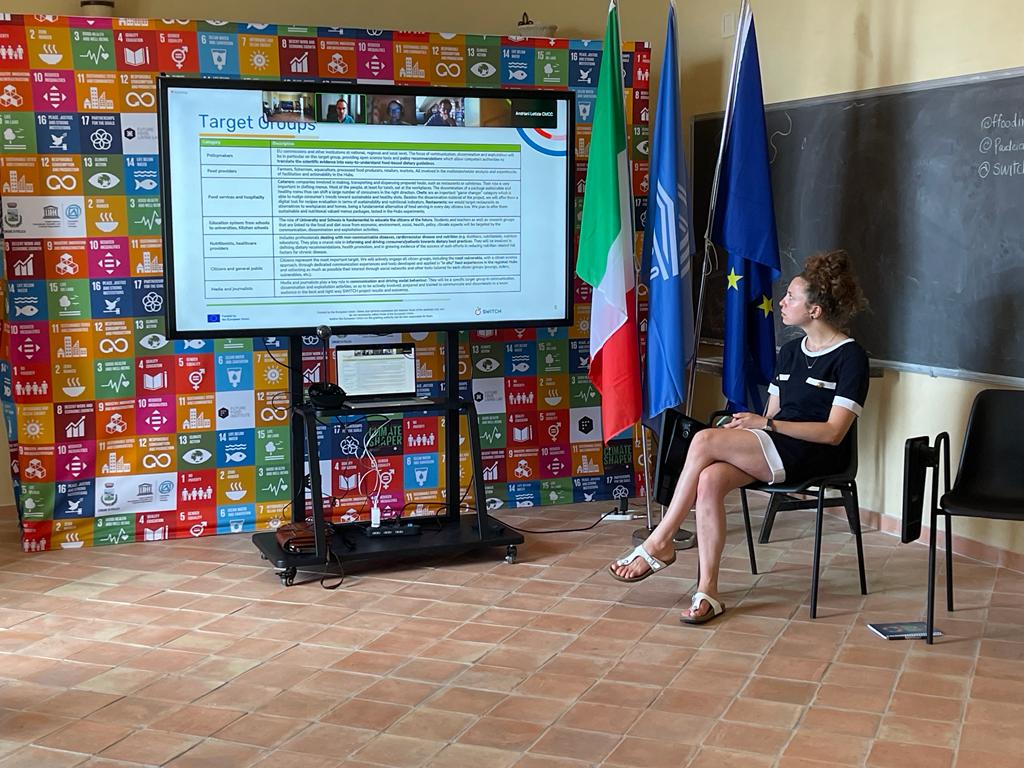July 24, 2023 – 6 Food Hubs and 20 partners involved in the sustainable transition of European food systems
Improving European food systems to facilitate a just, healthy, and sustainable food transition through knowledge and innovation: this is the goal of the European SWITCH project, funded by Horizon Europe. This is in line with the United Nations Sustainable Development Goals (SDGs).
In-depth research, a scientific approach, and systematic use of technologies – along the entire food supply chain, from production to consumption – will be instrumental in developing wider awareness and uptake of healthy and sustainable food systems in the European Union and in improving the understanding of gaps, in terms of training and accessibility, that limit the large-scale adoption of healthy dietary patterns.
Since its launch in January 2023, SWITCH aims to achieve sustainable food transition through the careful assessment of the socioeconomic, environmental and nutritional dynamics of food production and consumption in different territories, while also capitalizing on their social, cultural, economic, environmental and agronomic diversity. Since January, SWITCH was presented in various events, including the IMPACT THROUGH SYNERGY workshop organized by TOP SECTOR on 5th July 2023 in Amsterdam, the parallel summit event of NNEdPro’s International Summit on Nutrition and Health on the 13th July 2023, the Gastrodiplomacy Boot Camp organized by FFI with the participation of Il Gusto, Chefs’ Manifesto with a dedicated hybrid SWITCH presentation on 19th July 2023 and the Climate Shapers Boot Camp organized by FFI with a dedicated hybrid SWITCH presentation on 27th July 2023. The Food Hubs were also guided through two internal capacity-building workshops for Hub Leaders.
The 6 Food Hubs of SWITCH represent the food systems of a number of city region food systems (CRFS); that is, as defined by FAO, “all the actors, processes and relationships that are involved in food production, processing, distribution and consumption in a given urban region.” These CRFS are geographic regions-which include one or more urban centers, and their surrounding peri-urban and rural areas-through which people, food, goods, resources and ecosystem services, and all food system actors and activities flow.
SWITCH involves innovative actions in 6 Food Hubs across Europe: Rome and the Lazio region; Berlin and the Brandenburg region; Montpellier and the Occitania region; Cagliari and the Sardinia region; Gothenburg and the Västra Götaland region; and San Sebastian and the Basque region.
Over four years, the Food Hubs and partners involved in the project aim to: locally implement environmental, economic, and social sustainability; improve food models and related cultural approaches; and increase knowledge, awareness, and accessibility of the demand and supply of sustainable and healthy foods. The Food Hubs and partners aim to work with a joint strategy of co-creating equitable and sustainable solutions for all consumers.
The partners involved in the project are: CMCC – Euro-Mediterranean Center on Climate Change; BBC Innovation; DAS BAUMHAUS; Future Food Institute; IIASA; EPFL – École polytechnique fédérale de Lausanne; Kutxa Fundazioa and Kutxa Ekogunea; AGRO CAMERA (ARM); pOsti; LAORE; INRAE – Institut National de Recherche pour l’Agriculture, l’Alimentation et l’Environment; RISE – Research Institutes of Sweden; UPM; UNINA; UNICAMP; Wageningen University & Research; ZALF; Chalmers Sweden; BC3; Antistatique.
For more information on the SWITCH project and its objectives, visit the official website: switchdiet.eu/ and social media channels:
- LinkedIn (@switchdiet)
- Instagram (@switch.diet)
- Facebook (@switch.diet.eu)
- YouTube (@switchdiet)
- Twitter (X) (@switchdiet)
SWITCH communication office:
switch@futurefoodinstitute.org
press@futurefoodinstitute.org
SWITCH Coordination Office:
switch.coordinationteam@cmcc.it
SWITCH – Project number: 101060483. Call:HORIZON-CL6-2021-FARM2FORK-01-15: Transition to sustainable and healthy dietary behavior;
Disclaimer: The content herein reflects only the author’s view and the European Commission is not responsible for any use that may be made of the information it contains.

